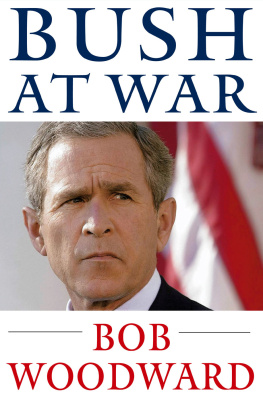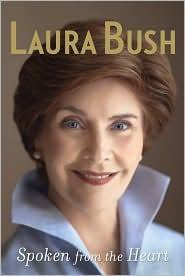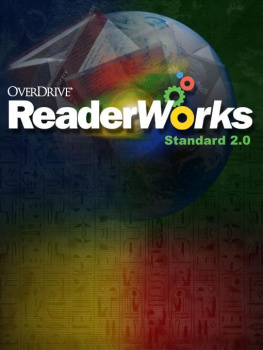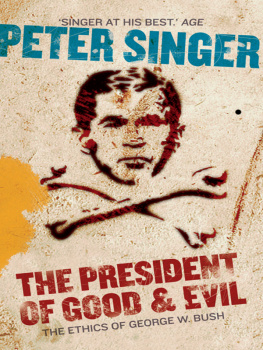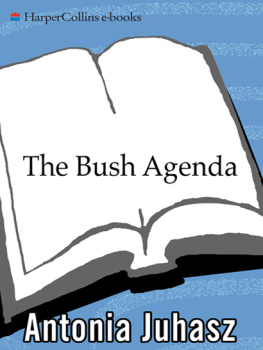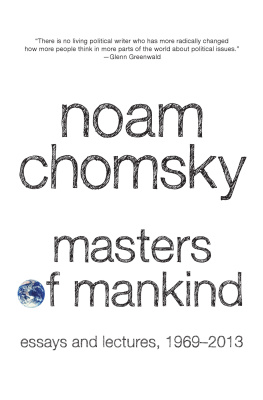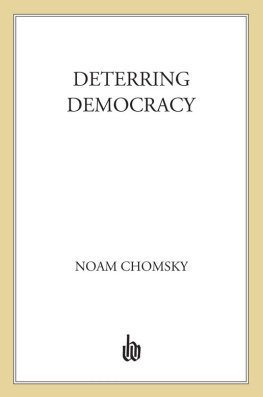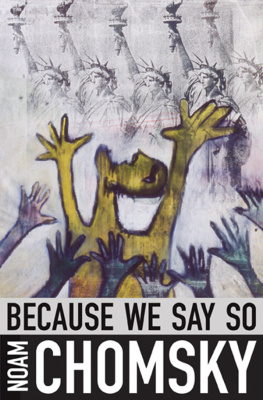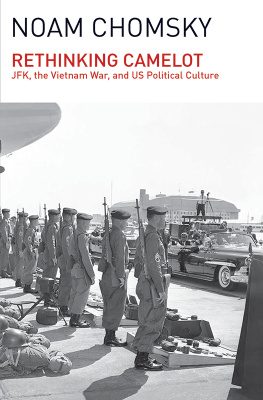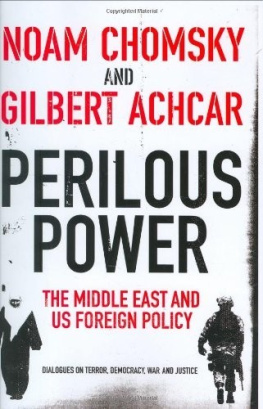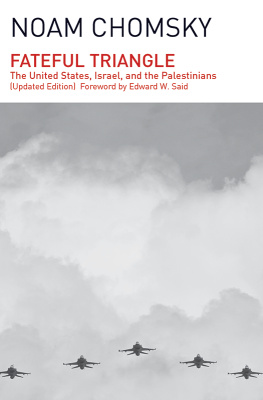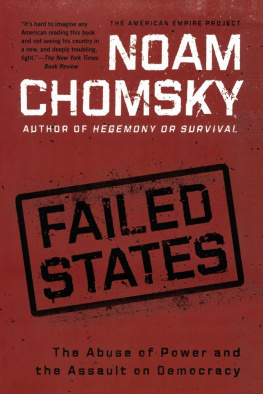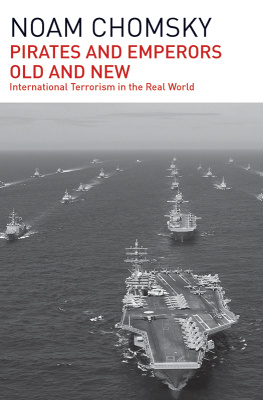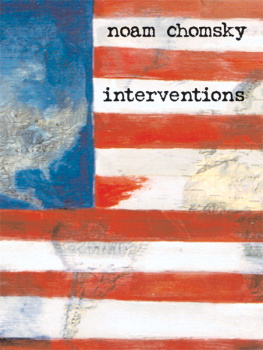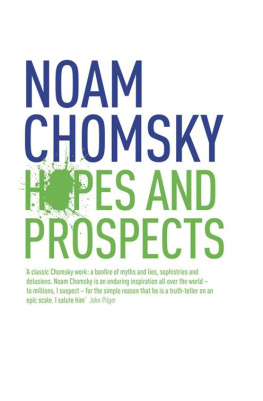THE WORLDS FOREMOST CRITIC OF U.S. FOREIGN POLICY EXPOSES THE HOLLOW PROMISES OF DEMOCRACY IN U.S. ACTIONS ABROAD-AND AT HOME
THE UNITED STATES HAS REPEATEDLY asserted its right to intervene militarily against failed states around the globe. In this much-anticipated follow-up to his international bestseller Hegemony or Survival, Noam Chomsky turns the tables, showing how the United States itself shares features with other failed statesand therefore is increasingly a danger to its own people and the world.
Failed states, Chomsky writes, are those that are unable or unwilling to protect their citizens from violence and perhaps even destruction and regard themselves as beyond the reach of domestic or international law. Though they may have democratic forms, Chomsky notes, failed states suffer from a serious democratic deficit that deprives their democratic institutions of real substance. Exploring the latest developments in U.S. foreign and domestic policy, Chomsky reveals Washingtons plans to further militarize the planet, greatly increasing the risks of nuclear war; assesses the dangerous consequences of the occupation of Iraq, which has fueled global outrage at the United States; documents Washingtons self-exemption from international norms, including the UN Charter and the Geneva Conventions, the foundations of contemporary international law, and the Kyoto Protocol; and examines how the U.S. electoral system is designed to eliminate genuine political alternatives, impeding any meaningful democracy.
Forceful, lucid, and meticulously documented, Failed States offers a comprehensive analysis of a global superpower that has long claimed the right to reshape other nations-toppling governments it deems illegitimate, invading states judged to threaten its interests, imposing sanctions on regimes it opposeswhile its own democratic institutions are in severe crisis, and its policies and practices recklessly place the world on the brink of nuclear and environmental disaster. Systematically dismantling the United States pretense of being the worlds arbiter of democracy, Failed States is Chomskys most focusedand urgentcritique to date.
Failed States
FAILED STATES
THE ABUSE OF POWER AND THE ASSAULT ON DEMOCRACY
NOAM CHOMSKY


Metropolitan Books
Henry Holt and Company, LLC
Publishers since 1866
175 Fifth Avenue
New York, New York 10010
Metropolitan Books is a registered
trademark of Henry Holt and Company, LLC.
Copyright 2006 by Harry Chomsky, as Trustee of Chomsky
Grandchildren Nominee Trust
All rights reserved.
Distributed in Canada by H. B. Fenn and Company Ltd.
Library of Congress Cataloging-in-Publication Data
Chomsky, Noam.
Failed states : the abuse of power and the
assault on democracy / Noam Chomsky.1st ed.
p. cm.
Includes bibliographical references and index.
ISBN-13: 978-0-8050-7912-8
ISBN-10: 0-8050-7912-2
1. United StatesForeign relations2001- 2. Unilateral acts (International law) 3. Security, International. 4. Iraq War, 2003- 5. War on Terrorism, 20016. Nuclear nonproliferation. 7. United StatesPolitics and government2001-8. Bush, George W. (George Walker), 1946- I. Title.
E902.C468 2006
327.730090511dc22
2006041961
Henry Holt books are available for special promotions and
premiums. For details contact: Director, Special Markets.
First Edition 2006
Map on page 180, originally published by Survival (2001) of the International
Institute for Strategic Studies, appears courtesy of Taylor & Francis Ltd.,
www.tandf.co.uk/journals.
Printed in the United States of America
3 5 7 9 10 8 6 4
Contents
Preface
The selection of issues that should rank high on the agenda of concern for human welfare and rights is, naturally, a subjective matter. But there are a few choices that seem unavoidable, because they bear so directly on the prospects for decent survival. Among them are at least these three: nuclear war, environmental disaster, and the fact that the government of the worlds leading power is acting in ways that increase the likelihood of these catastrophes. It is important to stress the government, because the population, not surprisingly, does not agree. That brings up a fourth issue that should deeply concern Americans, and the world: the sharp divide between public opinion and public policy, one of the reasons for the fear, which cannot casually be put aside, that the American system as a whole is in real troublethat it is heading in a direction that spells the end of its historic values [of] equality, liberty, and meaningful democracy.
The system is coming to have some of the features of failed states, to adopt a currently fashionable notion that is conventionally applied to states regarded as potential threats to our security (like Iraq) or as needing our intervention to rescue the population from severe internal threats (like Haiti). Though the concept is recognized to be frustratingly imprecise, some of the primary characteristics of failed states can be identified. One is their inability or unwillingness to
Among the hardest tasks that anyone can undertake, and one of the most important, is to look honestly in the mirror. If we allow ourselves to do so, we should have little difficulty in finding the characteristics of failed states right at home. That recognition of reality should be deeply troubling to those who care about their countries and future generations. Countries, plural, because of the enormous reach of US power, but also because the threats are not localized in space or time.
The first half of this book is devoted mostly to the increasing threat of destruction caused by US state power, in violation of international law, a topic of particular concern for citizens of the world dominant power, however one assesses the relevant threats. The second half is concerned primarily with democratic institutions, how they are conceived in the elite culture and how they perform in reality, both in promoting democracy abroad and shaping it at home.
The issues are closely interlinked, and arise in several contexts. In discussing them, to save excessive footnoting I will omit sources when they can easily be found in recent books of mine.
Chapter 1
Stark, Dreadful, Inescapable
Half a century ago, in July 1955, Bertrand Russell and Albert Einstein issued an extraordinary appeal to the people of the world, asking them to set aside the strong feelings they have about many issues and to consider themselves only as members of a biological species which has had a remarkable history, and whose disappearance none of us can desire. The choice facing the world is stark and dreadful and inescapable: shall we put an end to the human race; or shall mankind renounce war?
The world has not renounced war. Quite the contrary. By now, the worlds hegemonic power accords itself the right to wage war at will, under a doctrine of anticipatory self-defense with unstated bounds. International law, treaties, and rules of world order are sternly imposed on others with much self-righteous posturing, but dismissed as irrelevant for the United Statesa long-standing practice, driven to new depths by the Reagan and Bush II administrations.
Among the most elementary of moral truisms is the principle of universality: we must apply to ourselves the same standards we do to others, if not more stringent ones. It is a remarkable comment on Western intellectual culture that this principle is so often ignored and, if occasionally mentioned, condemned as outrageous. This is particularly shameful on the part of those who flaunt their Christian piety,
Next page

